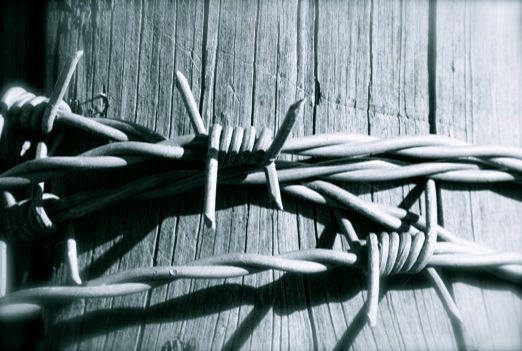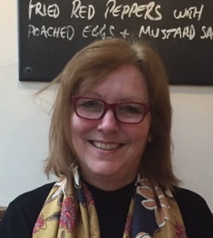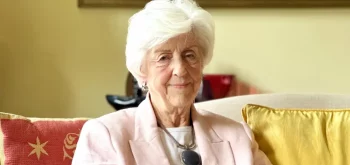
Before we discuss our busy autumn term, one of the issues faced by all university innocence projects, and indeed other educational pro bono clinics, is how to manage cases during the long summer break that our hilarious friends with ‘proper’ jobs accuse us of having.
At the risk of feeding that false perception, most university law clinics operate only during academic semesters, meaning realistically that students will be active on casework only for about 20 weeks of the year.
The balance is taken up with degree studies (after all, they are here to get a law degree), preparing students for casework, revision, exams and holidays. So we have a very short period of time in which to recruit and train students, and then get them started on real-client work. This is a fact of academic life.
All we can do is manage expectations of clients and any referring agencies, and have systems in place to deal with correspondence or queries in out-of-term periods. General pro bono ventures that operate as self-contained advice-only clinics tend to be an attractive operational model for clinical legal education activity. When researching potential new clinics for Cardiff, I visited several elsewhere and concluded that there was much to be said for this quick turnaround model, and indeed we have emulated that in our other pro bono clinics.
But innocence project work does not fit within that short turnaround. On the contrary, it probably has the most extended time commitment of any type of law clinic work (cases are with us for many years). This is something that universities considering starting an innocence project should be aware of, and they should fully consider the implications of this.
So while preparing for the onslaught that is otherwise known as the new autumn semester, what has occupied us at Cardiff?
Apart from keeping our existing casework ticking over (some innocence projects understandably close down completely over the summer) we have started to receive referrals from local solicitors. This is no doubt a consequence of very limited availability of legal aid, and it prevents solicitors being paid to work on cases that they clearly believe to have some merit.
One such referral came to us recently. We feel duty-bound to consider each potential referral carefully even though this often requires a fair chunk of time, first of all to see if we can help (if we have any capacity to take on new cases, which is for discussion in another diary entry), and if we can’t then to try our best to make practical suggestions. But the reality is usually that there is very little help available.
The Innocence Network UK (INUK) based at Bristol University receives many requests for help each year, and they hold a list of people that they deem eligible. Those cases are then offered to member innocence projects to consider, but the reality is that many remain on that list, probably for many years, and some may never be considered. This valuable but difficult task that Bristol performs must take many hundreds of hours in itself.
The latest INUK newsletter (Issue 8) refers to 113 cases assessed as eligible and on its “waiting list”, with a further 110 sent to member universities to work on.
Because there are few realistic alternatives for many alleged victims of wrongful conviction, the work of university innocence projects is potentially so important: it really is often the last resort and only hope for desperate people, some of whom will be innocent, but others of whom will undoubtedly be trying it on because they have nothing to lose.
Prisoners will no doubt be writing multiple letters to anyone who may be able to help, usually to be met with no immediate hope of assistance. The problem is exacerbated for those with literacy problems, and the overall situation can only get worse as criminal legal aid is eroded.
So what did we do with our latest referral? My colleague and I read the 50 plus pages carefully and concluded that the central issue related to cause of death, and very specifically to a particular type of drug found in the victim’s system. Our initial thoughts were that there was very little that law students could do by way of investigation because the focus needed to be on the medical side. Ironically, we would normally welcome a case where there is a medical issue central to the claim of innocence because that usually presents something concrete to explore, making the prospect of interdisciplinary innocence projects an attractive one.
We contacted our pro bono forensic pathologist who kindly helps us on medical issues. Unbeknown to us, he happened to have been one of the pathologists originally involved, so clearly could not take this further. He suggested some other names but expressed doubt as to the viability of challenging the medical evidence. We are about to write to the prisoner, and to the referring solicitor, to explain that we cannot be of assistance. We have made an alternative suggestion, but we know that this alternative organisation has more potential cases than it can realistically deal with. What else could we do? Frankly, I don’t know, but to get to that stage took about six hours of our time. And that was just one single query.
We often receive letters out of the blue asking for help. That is one of the sad things about this area of work. It is common to receive desperate pleas for help but to have to acknowledge that there is virtually nothing that we can do. One advantage for universities who are members of INUK is that they will be able to pass such queries directly to INUK at Bristol. This removes the immediate issue for those universities, but arguably stokes a wider problem for those who administer that waiting list because of the inherent practical and ethical issues that necessarily arise from this.
Next time in our diary, I’ll be looking at how we train and select our new cohort of students at the start of the new term.






